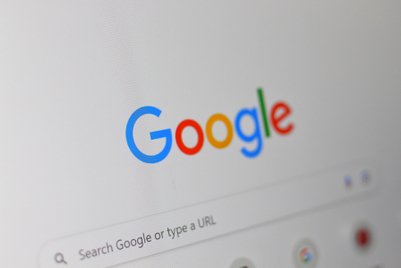
1. Android versus the iPhone
A common assumption is that Apple is way ahead of Google on mobile. And it's right. Apple shifted more than 11.4 million iPhones globally in 2008 while 2.4m handsets built with Google's Android operating system were sold, according to Gartner.
Mobile is, however, going to become a huge focus for Google. Even before Android hit the market, Schmidt declared that Google "can make more money in mobile than we do on the desktop." Given that declaration and Apple's proficiency in making successful handheld devices, mobile could be the key battleground between Apple and Google.
It should be acknowledged, however, that Apple still only has around an 8 per cent market share in smartphones worldwide. Nokia (44 per cent) and Research In Motion (17 per cent) remain the targets for Apple.
2. Chrome versus Safari
Google claims more than 30m people are using its Chrome browser and, in terms of market share, it's fast closing the gap on Safari. Research from Net Applications shows that in Q2 2009 Safari commanded 3.67 per cent of global market share compared to Chrome's 2.13 per cent.
Internet Explorer (68.06 per cent) and Firefox (23 per cent) remain the big boys in the market but the reality is that these three main challengers to Internet Explorer will continue to grow as Microsoft's browser loses market share.
Where the battle becomes more intriguing is with Chrome OS, Google's operating system. Google's mission to 'rethink what operating systems should be', should have its competitors, including Apple, running scared.
3. YouTube versus iTunes
This may not be an obvious battleground for now but both iTunes and YouTube could be headed for a collision. While iTunes has made a hugely successful business of selling premium audio visual content, Google is still working out how to generate a bulky cash flow for its phenomenally popular video sharing site.
One of the options likely to be taken up is charging money for premium content, although Google has declared no such intentions. Even if YouTube doesn't charge for content it's still challenging iTunes as the place to go for quality content. A range of deals with broadcasters and publishers is testament to that. But the battle to be the place to go for entertaining content is one that has a long future, as iTunes and YouTube look to compete in the same areas.
4. App Store versus Android Marketplace
Just last week Apple rejected Google Voice, the search giant's iPhone app that allegedly duplicates iPhone features. This could well be the spark that makes Google plough more resources into making Android Marketplace a world beater. It's very much early stage, especially when compared to the hugely successful App Store but as sales of Android handsets increase expect Google to emerge as a worthy competitor.
5. iPhoto versus Picassa
Photo sharing software should perhaps be billed as a skirmish rather than a battleground but the two companies do have competing services in iPhoto and Picassa. Similar skirmishes include iCal versus Google Calendar, iChat versus Google Talk, iDisk versus Google Docs and Spotlight versus Google Desktop. While some of these areas may become flashpoints most will likely co-exist side by side with neither company having much at stake. But with Schmidt leaving the Apple board and The Federal Trade Commission calling on Arthur Levinson, who sits on both boards, to resign, the battle between two companies who are defining the digital era is on.


+(900+x+600+px)+(3).png&h=334&w=500&q=100&v=20250320&c=1)
+(900+x+600+px).jpg&h=334&w=500&q=100&v=20250320&c=1)
.jpg&h=334&w=500&q=100&v=20250320&c=1)


.jpg&h=334&w=500&q=100&v=20250320&c=1)
+(900+x+600+px).png&h=334&w=500&q=100&v=20250320&c=1)


+(900+x+600+px)+(1).png&h=334&w=500&q=100&v=20250320&c=1)



.jpg&h=268&w=401&q=100&v=20250320&c=1)
+(900+x+600+px)+(2).jpg&h=268&w=401&q=100&v=20250320&c=1)
+(900+x+600+px)+(3).jpg&h=268&w=401&q=100&v=20250320&c=1)

+(900+x+600+px).png&h=268&w=401&q=100&v=20250320&c=1)